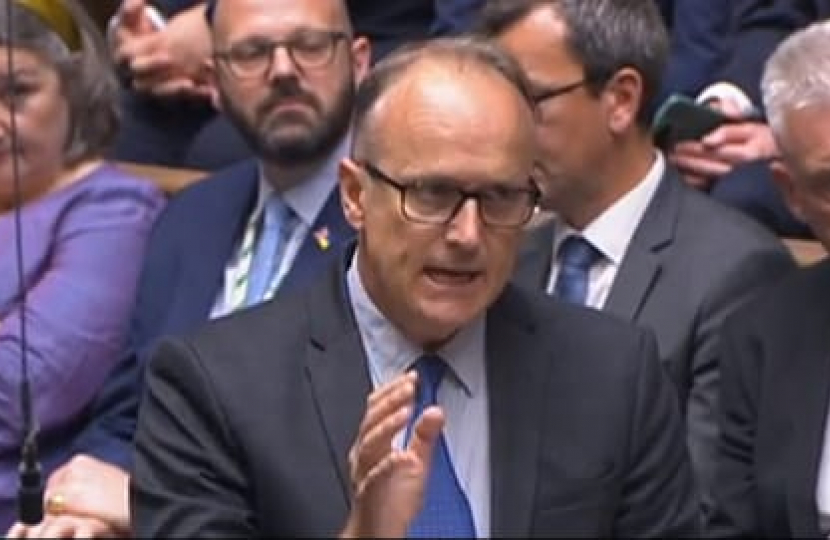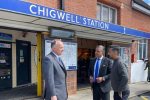
Dr Neil Hudson MP has made better connectivity - both physical and virtual - a cornerstone of his work in Parliament to unlock educational and business opportunities, improve mental health, and boost the economy.
He has therefore been proud to promote the Conservative Government pragmatic revisions to transport investment announced at the Conservative Party Conference in Manchester. New plans will see every region of the UK see an influx of monies - including a huge funding increase for his rural constituency.
With project costs more than doubling, the Prime Minister made the decision to deliver HS2 between Birmingham and London as planned; but instead invest every pound that would have been spent extending HS2 beyond this route on the forms of transport that matter most to people. Since the pandemic completely changed travel patterns, the business case has become weaker for HS2 - rather money will be better spent on connectivity within our towns, suburbs and cities as well as between a range of everyday local journeys for people. Locally this has meant Cumbrian authorities can now gain a share of the new £2.5bn North Local Integrated Transport Settlement, an entirely new fund for councils outside the combined authority areas - smaller cities, counties, towns and countryside – to invest in local transport.
This builds on the Government's £80 million Bus Services Improvement Plan 2024-25 fund, of which there have been three rounds – £80 million in 2023-24 and £1 billion in 2022. Locally Dr Hudson celebrated £876,873 of Conservative investment to support bus services in Cumbria - including the reinstatement of a Penrith school bus which Dr Hudson campaigned for. You can read more on bus investment here.
On digital connectivity, Dr Hudson also welcomed Government plans to further support 100,000 homes and businesses in the most rural parts of the UK to access improved broadband connections. The new announcement focused on a small minority of premises in rural and remote areas of the UK – known as ‘Very Hard to Reach Premises’.
Dr Neil Hudson MP, said:
"I have worked hard in Parliament to support better physical and digital connectivity for local people. With gigabit broadband being rolled out and spades in the ground for a number of road improvement projects, we are already seeing the economy grow, a host of educational and business opportunities develop and people's mental well-being supported by staving off rural isolation.
"Having seen up-close the benefits from localised investment, I am fully supportive of the Prime Minister's shift away from impractical infrastructure that would only advantage a small number of people to the forms of transport that matter to towns, cities and rural regions across the UK. This includes a brand new £2.5 billion fund to transform 14 regions to transform local transport.
"Moreover, with the pandemic completely changing travel patterns, the Government's emphasis on digital connectivity is hugely heartening. Particularly for so-called ‘Very Hard to Reach Premises’ in rural Britain which can now have their say on how the best-practicable broadband is delivered for those who have the most to gain from it."
Consultations published today outline plans to review and update the broadband Universal Service Obligation (USO) which already gives homeowners and businesses the legal right to request an affordable, decent broadband connection, and to develop and assess future policy to improve broadband connectivity for Very Hard to Reach Premises. You can take part in the open consultation to improve broadband for Very Hard to Reach premises here.
Alongside the measures to improve rural connectivity, the Secretary of State set out the government’s plans to level up rural communities by unlocking new homes in rural areas and investing in new technology to improve local transport links. The ‘Future of Transport: Helping local authorities to unlock the benefits of technology and innovation in rural transport’ will support local authorities, transport planners, bus operators and transport companies explore how emerging technologies could be deployed in non-urban areas.



